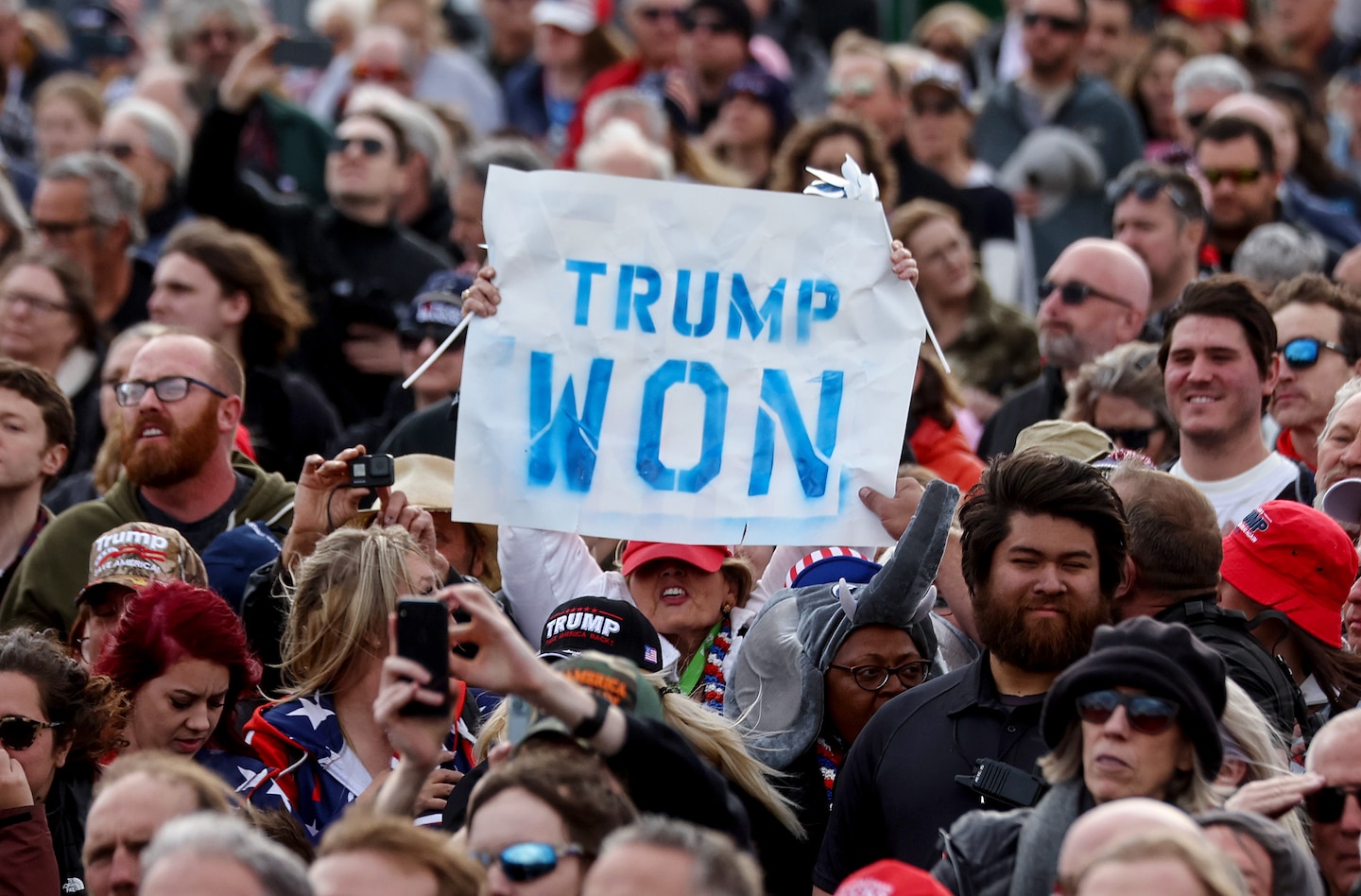Analysis | The small-city voter fraud case that doesn’t prove Donald Trump right

It’s not hard to figure out why this particular story is sparking interest in the moment. We’re less than a month since the premiere of Dinesh D’Souza’s film “2000 Mules” in which he alleges a massive ballot collection scheme in multiple states — including Arizona — that tipped the scales of the 2020 presidential contest. (The film entirely fails to provide credible evidence of this allegation as D’Souza suggested in a conversation with The Post.) D’Souza has repeatedly shared the story at the center of The Hill’s social strategy, arguing that it proves wrong detractors (like myself) who suggested that collecting ballots wasn’t necessarily illegal and, less directly, suggesting that it proves correct his general thesis.
Once again, what D’Souza claims to have isn’t what he suggests. Not only is the incident in Yuma City, Ariz., not evidence of any massive ballot-harvesting effort, and not only does it not prove that any ballot collection is illegal, but it’s also a case that is already included in D’Souza’s film.
At some point before the primary election in Arizona in 2020, a woman named Guillermina Fuentes was videotaped receiving four ballots from voters that were later submitted and counted. This practice of collecting ballots — a tactic at times used by voter-turnout groups to ensure that ballots are actually cast — was made illegal in Arizona under a 2016 law. Arizona Attorney General Mark Brnovich (who is now running for the state’s Republican Senate nomination) announced in December 2020 that Fuentes and a woman named Alma Juarez had been indicted on a charge of violating that law. In October 2021, Brnovich announced new charges suggesting that ballots had been altered.
Earlier this week, Fuentes (the woman in the mug shot) pleaded guilty to the ballot-collection charges. The more serious charges added later were dropped. The Associated Press reported that investigators believe Fuentes collected more than the handful of ballots she was videotaped with, but also that there was “no sign her illegal ballot collection went beyond the small-town politics Fuentes was involved in.”
This is, in fact, not much to hang a purported national voter-fraud effort on. If anything, it resembles other past small-scale efforts to violate election law, as in local or congressional elections in New Jersey and North Carolina.
Here we point out that Yuma County, Ariz., is also not a great example of how the presidential election might have been tainted by pro-Joe Biden fraud. In 2016, Donald Trump received about 25,000 votes and won the county by just over a percentage point. In 2020, Trump received 45 percent more votes — a bit under 37,000 — and improved to a six-point margin. If Yuma County was riddled with Democratic fraud, it’s hard to sniff out.
Yet Yuma County and its seat, Yuma City, are a subject of fascination for True the Vote, the group that provided D’Souza with the purported evidence of rampant ballot trafficking. At a hearing in Wisconsin in March, True the Vote’s Gregg Phillips claimed that the incidents in Yuma County (which he sort of implied* his group had helped uncover, for which there’s no evidence) had helped trigger their broader investigation. (“We understand that it doesn’t stop here,” he said of the Yuma investigation.)
The film itself includes an interview with a woman whose identity is obscured. She makes broad allegations about a rampant system of collecting fraudulent ballots — again in Yuma County. At a hearing on the purported harvesting scheme before an Arizona legislative committee in May, a True the Vote representative said this person was working with Brnovich’s investigators. She also said that True the Vote had begun focusing on Yuma in “late October 2020,” well after investigators had received the video showing Fuentes collecting ballots that apparently led to her indictment.
What “2000 Mules” has been good at is crystallizing the nebulous concerns many on the right have about the 2020 election around a purportedly data-driven example of electoral malfeasance. The film has given a polished example of something bad seeming to happen — enough, pointedly, to change the election outcome — and has become a sensation as a result. It offers a frame within which Republican officials are now expected to operate.
Once the film was released, the office of the sheriff of Yuma County issued a news release articulating its efforts to combat voter fraud. The sheriff, Leon Wilmot, told reporters he wasn’t investigating fraud in response to the film, but it seems clear that the news release was meant to show action on the subject.
In other words, the available evidence suggests that a local ballot-collection effort of unclear scale was interrupted by state authorities. It’s known that four ballots were collected (though not provably altered in any way) during the primary election in 2020. This appears to have then been used repeatedly as a peg for the film itself: that interview with the unnamed person and, abstractly, to validate a claim from Phillips that Fuentes’s arrest prompted ballot harvesters to start wearing gloves when dropping off ballots. (One person in Georgia is shown in the movie wearing gloves when depositing a run-off election ballot during a pandemic.) That Fuentes has pleaded guilty offers no advancement of D’Souza’s transparently thin case.
What D’Souza and his allies seem not to appreciate is that the fact that Fuentes’s ballot collection was detected and prosecuted undercuts the idea that thousands of people were involved in a multistate effort to collect ballots without detection. The argument here is like the argument in defense of Trump’s fraud claims more broadly: No one is investigating this easy-to-prove crime!
And, like Trump’s fraud claims, the reality is the inverse: People are looking very hard and finding very little that’s provably criminal.
* Phillips said: “We began to get reports that there were ballots being collected, meaning going out, knocking on doors, getting ballots from older people or getting ballots from people in certain specific communities. They were gathered in a particular location. The people that were doing the collections were being paid for the collection, and then one person was taking those big stacks of ballots to a particular drop box, of which there were two in San Luis, and dropping them off. There have since been several arrests related to this. There’s been one conviction; there’s another conviction soon to be revealed.”
This article has been archived for your research. The original version from The Washington Post can be found here.


